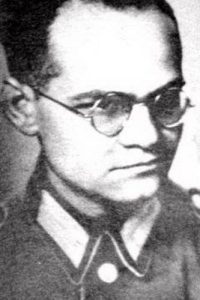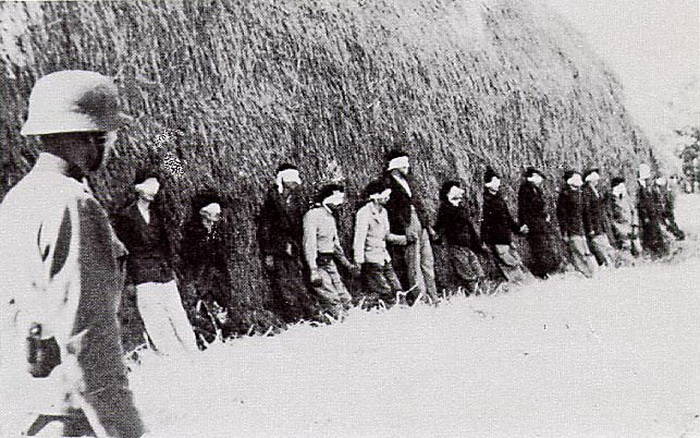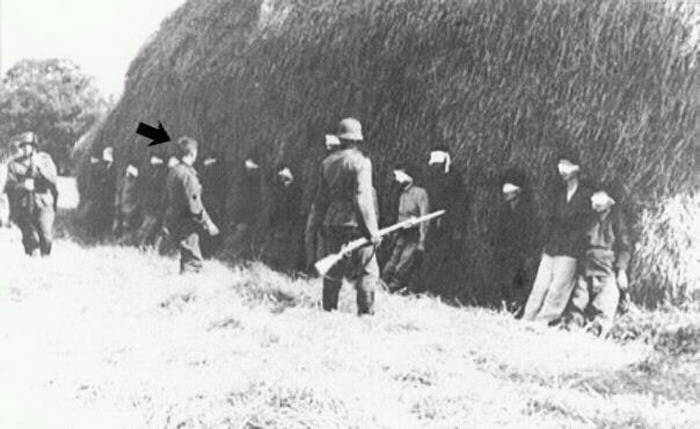 The German Wehrmacht left an unkind memory of itself. No matter how disowned his veterans of numerous war crimes, they were not only soldiers, but also punishers. But the name of this Wehrmacht soldier in Serbia is pronounced with respect. A film was made about him, his name is on the pages of a Serbian history textbook.
The German Wehrmacht left an unkind memory of itself. No matter how disowned his veterans of numerous war crimes, they were not only soldiers, but also punishers. But the name of this Wehrmacht soldier in Serbia is pronounced with respect. A film was made about him, his name is on the pages of a Serbian history textbook.
Seventeenth
In July 1941, a partisan detachment was defeated in Serbia near the village of Vishevets. After a hard battle, a sweep was carried out, during which 16 local residents were arrested, suspected of supporting and sympathizing with the partisans. The military court was swift, its verdict was predictable: all 16 were sentenced to death. A platoon from the 714th Infantry Division was assigned to carry out the sentence. The convicts were blindfolded and put to a haystack. The soldiers stood against them and took their rifles at the ready. Another moment – and the command “Feuer!” Will sound, after which 16 people will join the endless list of victims of the Second World War. But one of the soldiers lowered his rifle. He went up to the officer and said that he would not shoot: he is a soldier, not an executioner. The officer reminded the soldier of the oath and presented him with a choice: either the soldier returns to the ranks and, together with others, will carry out the order, or he will stand at the haystack together with the convicts. A few moments, and the decision is made. The soldier put his rifle on the ground, walked towards the Serbs sentenced to death and stood next to them. The name of this soldier is Joseph Schulz.
Was it or not?
For a long time, the very fact of Joseph Schulz’s refusal to participate in the execution of civilians and his subsequent execution was questioned. It was argued that this whole story is communist propaganda. The Schultz family received an official notification that Corporal Josef Schultz gave his life for the Fuhrer and the Reich in a battle with Tito’s “bandits”. But the commander of the 714th division, Friedrich Stahl, described the incident in detail in his diary. There were even found photographs taken by one of the members of the firing squad. On one of them, Joseph Schulz, without a weapon and without a helmet, goes to a haystack to stand among those being shot. The 1947 exhumation of the remains of the dead put an end to the dispute. Among the 17 buried, one was in the uniform of the Wehrmacht troops. Josef Schulz didn’t die in battle, but was shot. The command of the division decided to hide the shameful fact of the soldier’s failure to comply with the order, and the company commander, Chief Lieutenant Gollub, sent Schultz’s mother in Wuppertal a notice of the heroic death of her son in battle.


Who is he, Joseph Schulz?
There is nothing heroic in the biography of Corporal Josef Schulz. His father died in the First World War, Joseph remained the eldest in the family and began working early. Crafts school, work as a showcase designer. According to his brother’s recollections, Joseph was neither hot-tempered, nor reckless, nor aggressive, but rather gentle and sentimental. I have never been involved in politics, I was neither a communist nor a social democrat.
I was ready to serve the motherland and the Fuhrer. At the time of his death, he was 32 years old, a man with an already fully formed worldview. He knew perfectly well how a soldier who refused to carry out an order was punished in wartime. Why didn’t he just shoot in the air? After all, no one would know that his bullet flew past. But then, in the eyes of all others, he would become a murderer and remain so forever. Unlike many, neither the oath, nor the military duty, could become an excuse for him. Quite consciously, he made the decision to die with clean hands and a name.
In Serbia, there is a monument to the victims at the site of the tragedy. There is a plate with the names and surnames of those executed on the monument. 17 surnames: 16 – Serbian and 1 – German.